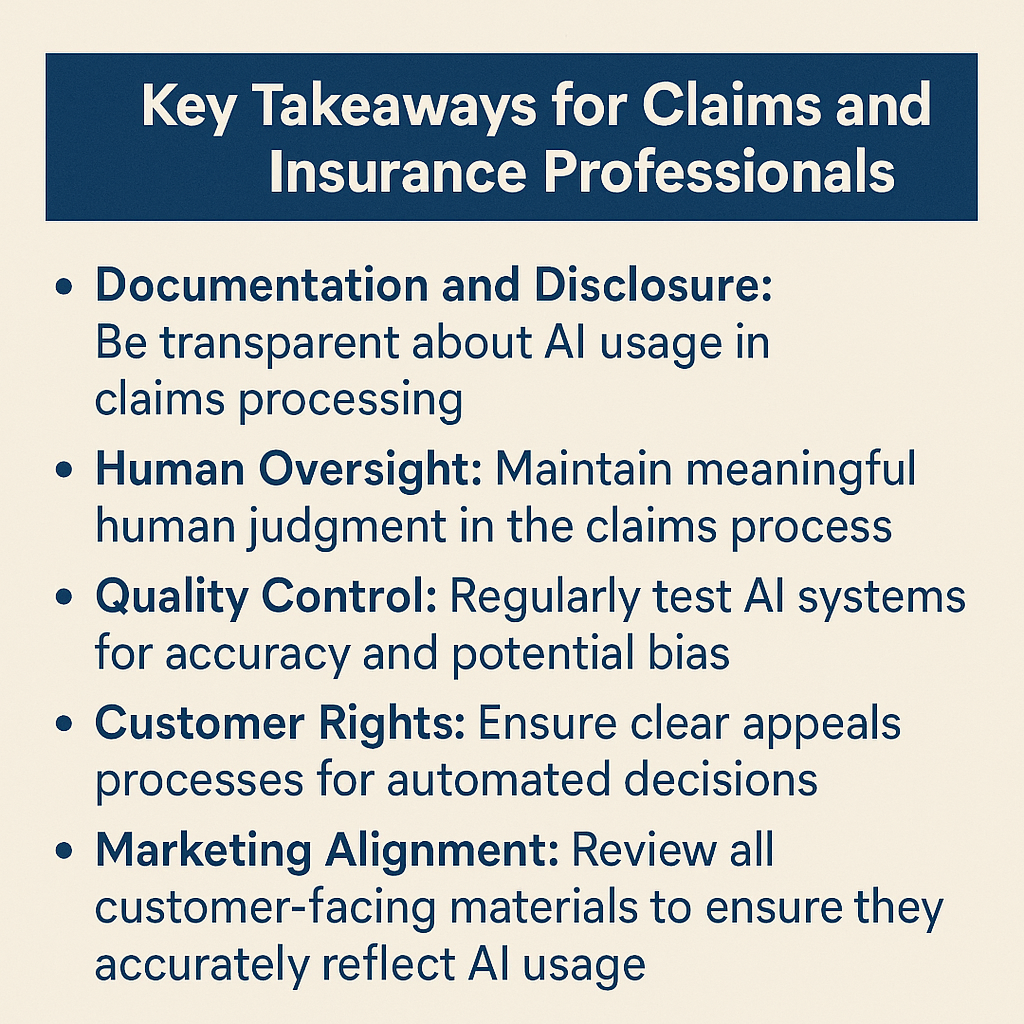2 min read
EU's AI Act: Ethical and Transparent AI Regulations & Implications for the US
I received this email from Coursiv (an online AI educational platform) (beginning email) Hello, You know how we’ve been exploring AI tools and...
1 min read
.jpg) Nicholas Lamparelli
:
Aug 27, 2025 9:54:57 AM
Nicholas Lamparelli
:
Aug 27, 2025 9:54:57 AM

Concise summary of the key elements from "When Algorithms Deny: AI and the New Frontier of Bad Faith" (originally published on JDSupra by Cozen O'Connor):
Key Elements
The insurance industry's adoption of AI in claims processing presents both opportunities and challenges. While AI can enhance efficiency and speed up claims resolution, recent legal cases highlight the importance of transparent implementation and adherence to good faith obligations.
Transparency is Essential
Operational Safeguards
Risk Management
The successful integration of AI in claims processing requires balancing technological innovation with traditional insurance obligations of good faith and fair dealing. Claims professionals must ensure that efficiency gains from AI don't compromise transparency or customer trust.
Remember: The difference between successful AI implementation and potential legal exposure lies in maintaining transparency, proper oversight, and adherence to good faith principles.

2 min read
I received this email from Coursiv (an online AI educational platform) (beginning email) Hello, You know how we’ve been exploring AI tools and...

1 min read
Every claim leader faces a fundamental challenge: Should they invest in improving the system—the machine—or developing their people? In an industry...

4 min read
This guest article from Friendly first appeared HERE Like many claims professionals, I had developed a trusted process over the years—structured,...